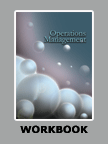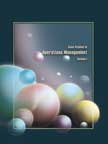Unilever Restructures its Supply Management Practices
|
|
ICMR HOME | Case Studies Collection
Case Details:
Case Code : OPER027
Case Length : 15 Pages
Period : 2001 - 2003
Organization : Unilever
Pub Date : 2004
Teaching Note :Not Available
Countries : USA
Retail
To download Unilever Restructures its Supply Management Practices case study
(Case Code: OPER027) click on the button below, and select the case from the list of available cases:

Price:
For delivery in electronic format: Rs. 400;
For delivery through courier (within India): Rs. 400 +Shipping & Handling Charges extra
» Operations Case Studies
» Case Studies Collection
» ICMR HOME
» View Detailed Pricing Info
» How To Order This Case
» Business Case Studies
» Case Studies by Area
» Case Studies by Industry
» Case Studies by Company 
Please note:
This case study was compiled from published sources, and is intended to be used as a basis for class discussion. It is not intended to illustrate either effective or ineffective handling of a management situation. Nor is it a primary information source.
Chat with us

Please leave your feedback

|
|




<< Previous
"It is not about supply management delivering on its
goals. It is about Unilever businesses delivering on our overall goals and what
we can do to help do that. Meeting the €1.75 billion savings target puts a
spotlight on the capabilities of the supply management organization."
- Gregory F. Polcer, Vice President, Global Souring
Management, Unilever,
in September 2002.1
Short-Term Gains - Long-Term Perspective
|
In December 2001, Unilever, one of the world's leading consumer goods companies,
was declared a winner in the Aberdeen Group's2
'Best Practices in E-Procurement' contest. Unilever won this contest for
successfully implementing the Ariba Buyer eProcurement solution from Ariba Inc (Ariba).3
Implemented at Unilever since mid-2000, this solution was used to streamline the
company's procurement activities throughout its worldwide facilities. Unilever
also set up a Global Ariba Center of Competence (GACE) to promote best practices
in procurement throughout the company. The company established the European
Ariba Academy as well to provide multiple site implementation (of Ariba
solutions) and virtual training in Britain.
|

|
Commenting on Unilever's experience with Ariba Buyer, Frances Howarth, Research
Director, e-Business Enterprise Business Applications, Aberdeen Group, said
"In areas where implementation has taken place, disparate procurement
processes are being replaced by a single business approach that will allow
Unilever to benefit from further waves of strategic sourcing, enabled by
e-procurement technology. Paperflow has already been reduced - particularly
in its Research Labs where the number of invoices received, previously
numbering several thousand, has been reduced to less than a few hundred."4
|
|
For
Unilever however, the recognition of its efforts and the benefits were
just short-term benefits accruing from the ongoing supply chain
management (SCM) restructuring exercise. The SCM restructuring was
itself a component of a large-scale five-year organizational
restructuring exercise undertaken by Unilever in 2000. This initiative,
named the 'Path to Growth,' aimed at achieving annual top-line growth of
5%-6% and operating margins of over 16% (as compared to 11% in 2000) by
2004.5 Unilever expected to
achieve these results by focusing on its leading brands (by pruning the
brand portfolio and divesting under-profitable businesses) and
supporting them with strong innovation, enhanced marketing support,
simplified processes and restructured SCM practices. |
However, restructuring its complex SCM framework, which
encompassed many companies and was spread across different countries, proved to
be quite a challenging task for Unilever.
Unilever Restructures its Supply Management Practices
- Next Page>>
|
|










